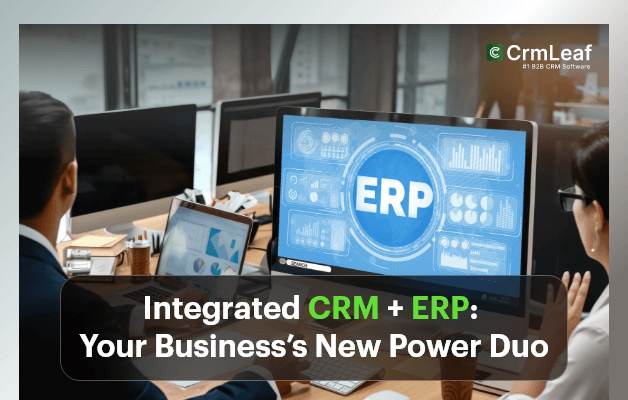Digital transformation is no longer an option; it’s a necessity in today’s fast-paced business environment. Yet, today’s organizations still rely on various outdated systems and fragmented processes. This furthermore hinders growth and agility. ERP management is essential to breaking these silos; you can achieve this by modernizing business operations as well as enabling enterprises to scale effectively.
Today’s advanced ERP solution integrates core functionalities such as finance, HR, supply chain, and customer relationship management into a single system. This centralization improves business modernization by automating workflows, as well as providing real-time insights and optimizing decision-making.
This blog also explores how ERP management can drive digital transformation, improve business efficiency, and establish scalability in a competitive market.
What is ERP, and why is it crucial for business modernization?
ERP, or Enterprise Resource Planning, is an integrated system that connects important business functions, streamlines operations, and facilitates a seamless digital transformation. In effect, it eliminates manual inefficiencies as well as provides a single source of truth for enterprises in order to make data-driven decisions.
Key Reasons Why ERP is Essential for Business Modernization:
- Unified Business Operations: Centralize your data for a more seamless coordination across departments
- Automation & Efficiency: Reduce manual tasks and human errors through intelligent automation
- Data-Driven Decisions: Provide real-time analytics for strategic decision making
- Scalability & Flexibility: Grow with your business needs to adapt to market changes effortlessly
- Compliance & Security: Ensure regulatory compliance with built-in governance and security frameworks
Leverage ERP management so that businesses can replace outdated legacy systems with intelligent, cloud-based ERP solutions.
By leveraging ERP management, businesses can replace outdated legacy systems with intelligent, cloud-based ERP solutions, enabling business modernization at scale.
How ERP Accelerates Digital Transformation?
Digital transformation is all about integrating technology to enhance efficiency and agility. ERP management is at the core of this shift, driving automation, connectivity, and innovation across business processes.
How ERP Powers Digital Transformation:
- Cloud-Based ERP Solutions: Provide remote access, real-time collaboration, and cost-effective scalability.
- AI & Machine Learning in ERP: Enhances automation, predictive analytics, and intelligent decision-making.
- Big Data & Analytics: Converts raw data into actionable business insights for growth strategies.
- Seamless Integration: Connects with CRM, HRMS, eCommerce, and other enterprise applications for efficiency.
- Enhanced Cybersecurity: Ensures data protection, regulatory compliance, and risk management.
A well-executed ERP strategy ensures enterprises can scale, adapt, and compete effectively in a digitally transformed economy.
Key Benefits of ERP in Business Modernization
Organizations that implement ERP management see significant improvements in productivity, agility, and decision-making. Here’s how ERP enables business modernization:
- Improved Operational Efficiency
ERP automates workflows, reducing manual errors and improving overall productivity.
- Real-Time Data Insights for Better Decisions
With real-time analytics and AI-driven insights, businesses can make data-backed decisions faster.
- Enhanced Customer Experience
ERP integrates with CRM systems, ensuring personalized customer interactions and better engagement.
- Greater Scalability & Flexibility
Modern ERP solutions are cloud-based, ensuring flexibility and scalability as businesses grow.
- Cost Savings & ROI Growth
By eliminating inefficiencies and optimizing resources, ERP helps reduce costs and boost profitability.
Adopting ERP-driven business modernization not only enhances efficiency but also gives enterprises a competitive edge in today’s market.
The Future of ERP: AI, Cloud, and Automation
The next generation of ERP software is powered by cutting-edge technologies like AI, cloud computing, and blockchain. Here’s what’s driving the future of ERP in business modernization:
- AI & Predictive Analytics: Helps automate decision-making, detect patterns, and forecast market trends.
- Cloud ERP: Provides seamless access to enterprise data anytime, anywhere with enhanced security.
- IoT-Integrated ERP: Enables real-time monitoring of assets, inventory, and supply chains.
- Blockchain for ERP Security: Ensures transparent and tamper-proof transaction management.
Businesses that adopt intelligent ERP solutions can stay ahead of industry disruptions and future-proof their digital transformation journey.
Conclusion
The role of ERP in digital transformation is undeniable. It acts as the backbone of business modernization, enabling enterprises to optimize operations, automate workflows, and make intelligent decisions in real-time.
By integrating AI, cloud-based solutions, and automation, ERP empowers businesses to achieve scalability, agility, and long-term growth. Whether you’re a small business or a large enterprise, investing in ERP management is the key to staying competitive in a rapidly evolving digital economy.


